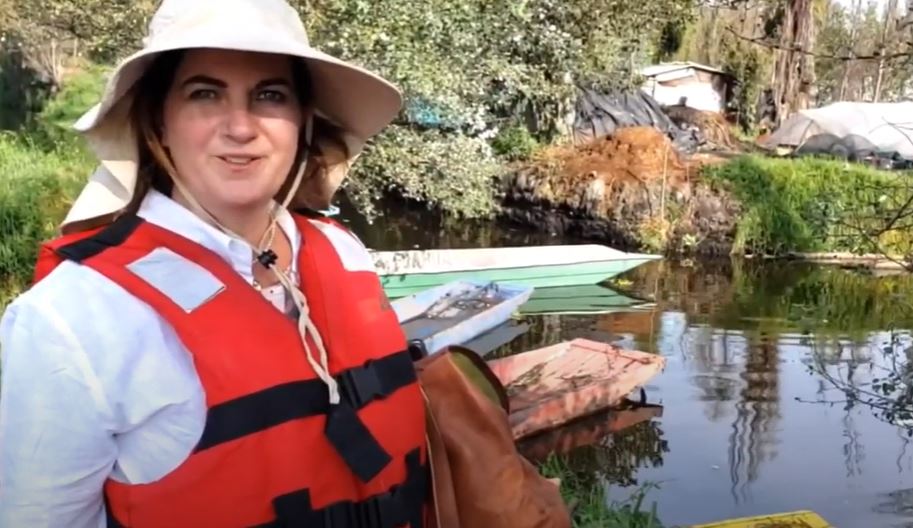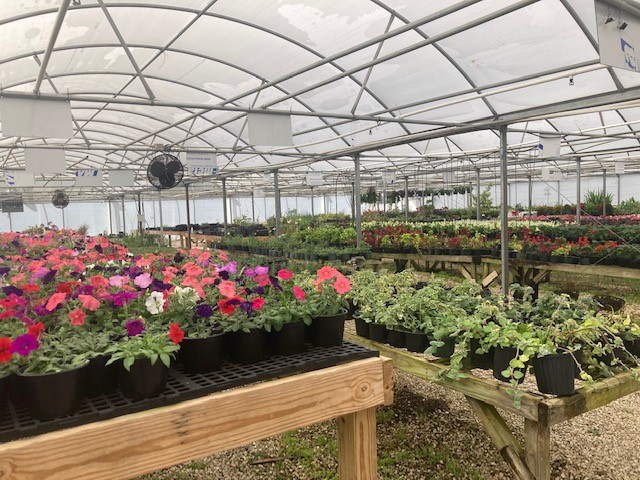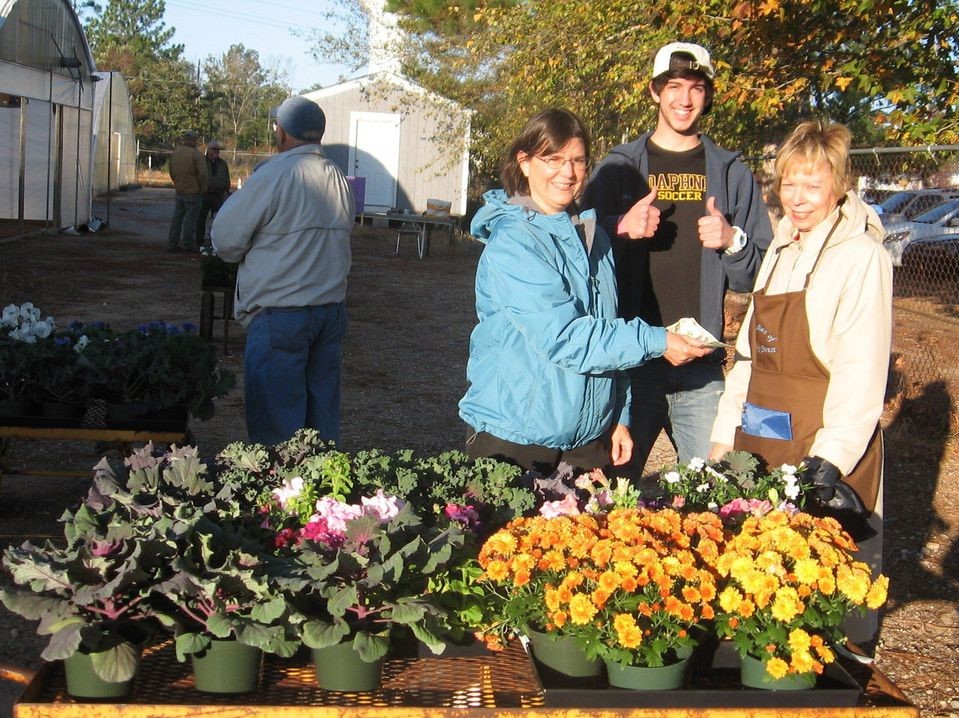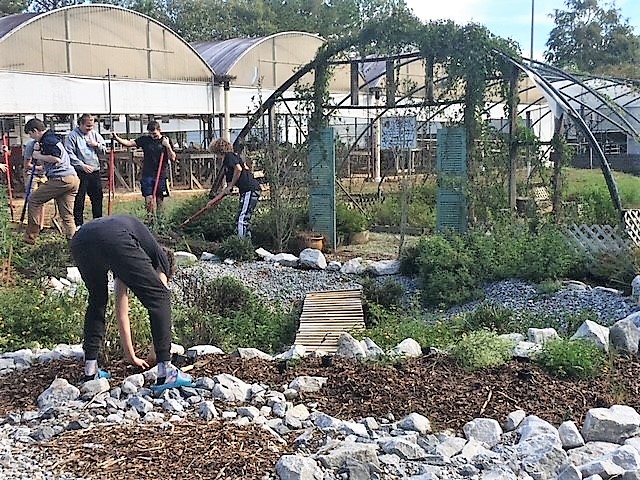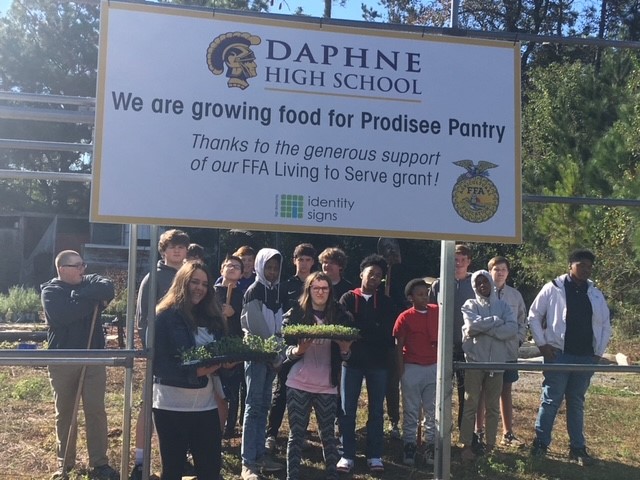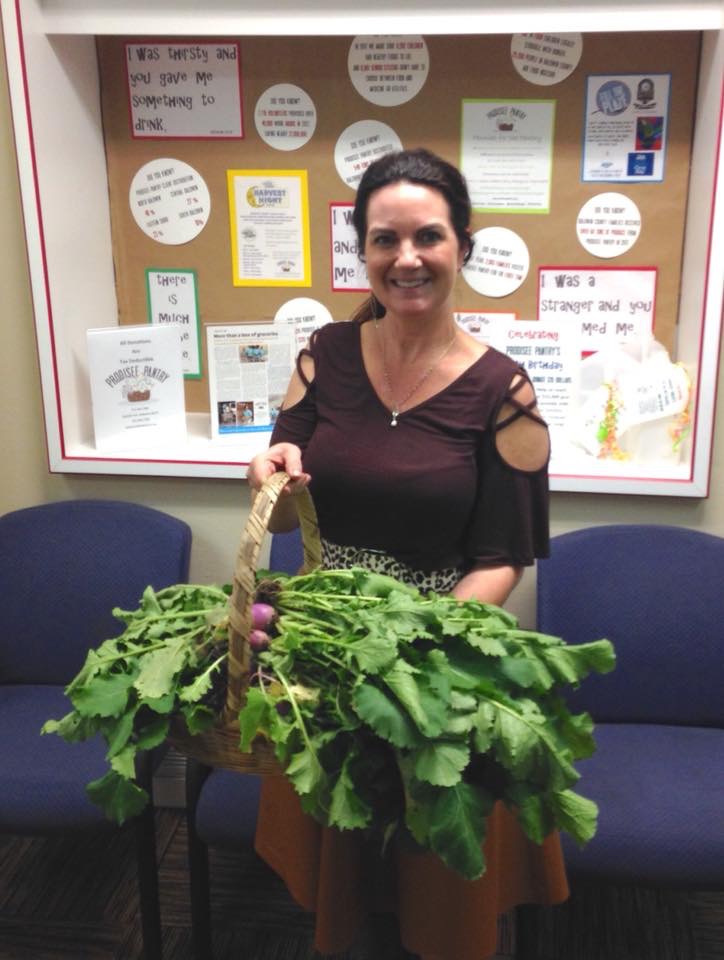 Four years ago, the land behind Daphne High School lay fallow and Betsy Anderton’s kids lay on the sofa looking at their phones. This combination did not sit well with Betsy, who held a Master’s and Ph.D. in Instructional Design but had not been at the head of a classroom for more than 25 years.
Four years ago, the land behind Daphne High School lay fallow and Betsy Anderton’s kids lay on the sofa looking at their phones. This combination did not sit well with Betsy, who held a Master’s and Ph.D. in Instructional Design but had not been at the head of a classroom for more than 25 years.
“I felt committed to getting kids off their phones and involved in purposeful, outdoor projects that would carry into their lives beyond high school,” said Betsy. “I hadn’t taught before, had no experience in agriculture and didn’t really have a vision for where I would take the program, but I knew that it was an opportunity to teach kids in a different way while also incorporating all of the great things they were learning at school.”
Pivoting from her career developing curriculum content for online platforms, Betsy joined the staff at Daphne High School near the Gulf Coast of Alabama, requisitioned school land and began building an agriculture education program that incorporates aspects of other teachers’ curriculum. She built a “Shakespeare Garden” for English students and had chemistry students demonstrate cationic exchange and pH balance. Storm water issues from the nearby Tiawasee Creek watershed inspired the “history” component of her curriculum, and Fund for Teachers provided the opportunity to research it.
“I became interested in the Mexican chinampas because they seemed to be dealing with so many of the issues we deal with here,” Betsy said. “I also wanted to be able to teach agriculture from a sustainable perspective. So, the fellowship took me further into an area I was already very excited about.”
Elizabeth designed a 2019 Fund for Teachers fellowship to join an EarthWatch team’s study of traditional farming and wetland preservation in the Xochimilco Wetlands of Mexico to enhance current studies of wetland conservation with other professionals who can encourage student learning on these efforts.
Watch several videos Elizabeth made on her fellowship here.
“The experience informed every aspect of my instruction from our studies on integrated pest management to traditional farming and storm water management,” she said. “My students created a chinampa on our school farm. My greenhouse class now uses the process of soil blocking from the chinampas and agriscience students are using the story of the threatened axolotl salamander to understand environmental threats caused by invasive species as well as the importance of managing the fertilizers we use which, if not used properly, can end up in our waterways and eventually Mobile Bay.”
- Flowers and plants grown for a community-wide sale/fundraiser
- Volunteering at the plant sale
- Daphne High School’s gardens and greenhouses
Currently, Betsy’s students are creating an outdoor classroom for the feeder schools with interpretive signs and various types of gardens and examples of best management practices for the region. Her students also deliver harvests from the gardens to a local food pantry. (Watch media coverage here.) To facilitate the construction of new greenhouses, watershed solutions and supporting structures, Betsy writes grants — and has secured more than $120,000 from local, regional and national organizations, including the National Endowment for the Humanities, the Environmental Protection Agency, Harbor Freight Tools and Future Farmers of America.
“I think as teachers it often feels like we have achieved a goal if we get our lessons to a point where they are stable and we can just go in and teach,” said Betsy. “It’s easy to forget that this minimizes the chance for flexibility and improvement but, most importantly, it may not be keeping us engaged at the level our students need to witness if we are to model life-long learning. It is important that we remain challenged in our teaching, even to the point where we are learning alongside our students, as it is only then that we can understand the questions they are asking as they climb the ladder to expert.”
Thank you to Betsy and her students for filming the video (above) of their garden and farm at Daphne High School in Daphne, AL.
[minti_divider style=”1″ icon=”” margin=”20px 0px 20px 0px”]
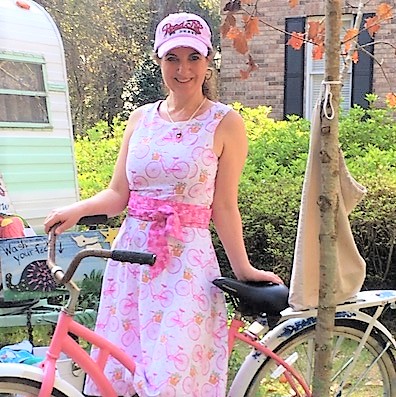 Betsy Anderton is a high school agriscience teacher born and raised in coastal Baldwin County, AL. She spend many weekends on her family farm in Mississippi and feels passionate about connecting students with both land and water. This commitment is inclusive of using agriculture to create communities, helping students understand the importance of environmentally friendly practices, repurposing items for alternative landscaping and gardening, and agritourism.
Betsy Anderton is a high school agriscience teacher born and raised in coastal Baldwin County, AL. She spend many weekends on her family farm in Mississippi and feels passionate about connecting students with both land and water. This commitment is inclusive of using agriculture to create communities, helping students understand the importance of environmentally friendly practices, repurposing items for alternative landscaping and gardening, and agritourism.
